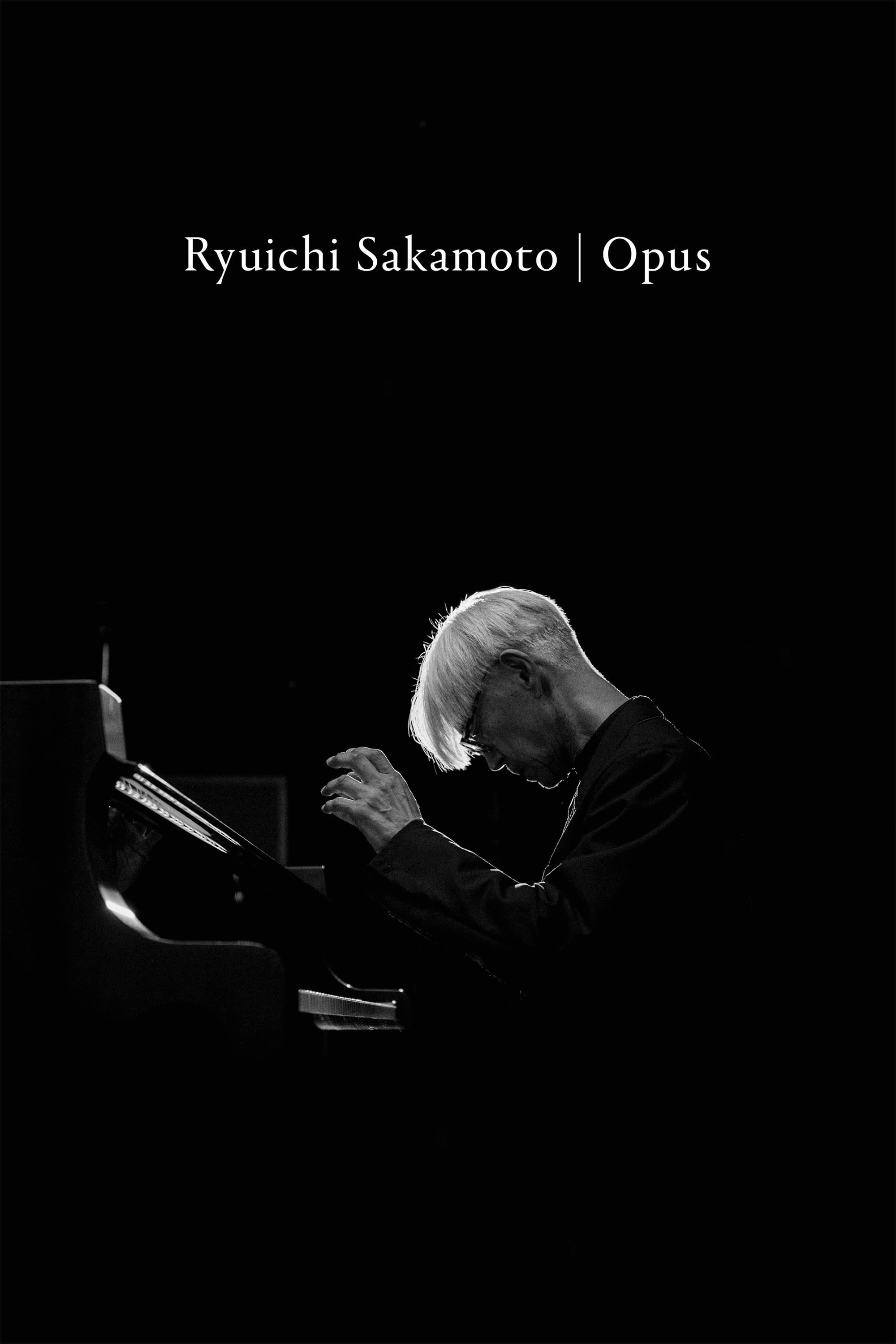Ryuichi Sakamoto: Opus
directed by Neo Sora (2023)
Opus is a recording of famed composer and artist Ryuchi Sakamoto’s favorite pieces, personally curated and performed solo on piano. This intimate performance was Sakamoto’s last, as he soon sadly passed away from a long battle with cancer later in 2023. The film is beautifully shot and recorded, with slow pans over Sakamoto’s hands and atmospheric stills of the recording studio complementing the music.
There’s a moment in the middle of Sakamoto’s performance of Bibi no Aozora where the music falters and Sakamoto grasps at the thread of the left hand chords. After searching for and finding the dissonance he wants with a pained expression, Sakamoto concludes the piece but says “One more time.” We never do get to hear that “one more time,” as the film quickly moves onto the next piece, leaving us to ponder the imperfection.
This small glimpse of Sakamoto’s humanness through his playing is what I think makes his music and this final performance so compelling. To get a sense of what I mean, take a listen to one of my favorite pieces by Hideyuki Hashimoto, then listen to Bibi no Aozora. On first listen, the beginning of Bibi no Aozora is much more melancholy, but the sparse voicings, slow melodic lines, and simple arrangement are quite similar.
Yet there is a moment around 1:38 where the chord doesn’t feel quite right. Although brief, these moments keep popping up: 2:54, then 3:38. Finally at 4:08 the left hand chords detach entirely from the right hand melody and wander about before rejoining at 4:36. Compare this to Hideyuki’s piece, which, while beautiful in its own right, maintains the shiny veneer of “proper” chord changes and harmony.
Sakamoto’s unexpected chord changes and glimpses of dissonance are what I find make his music so interesting and so moving. His compositions don’t try to plaster over the complexity or messiness of the emotions he wants to convey, but instead lean in. They want to break free and run about. Sakamoto’s son and the director of Opus, Neo Sora, says in an interview that this moment in Bibi no Aozora “freed [Sakamoto] to do whatever he wanted,” and that “[he] thought it was more interesting to keep the mistake.” I tend to agree; life and all its beauty is much more interesting with the mistakes.